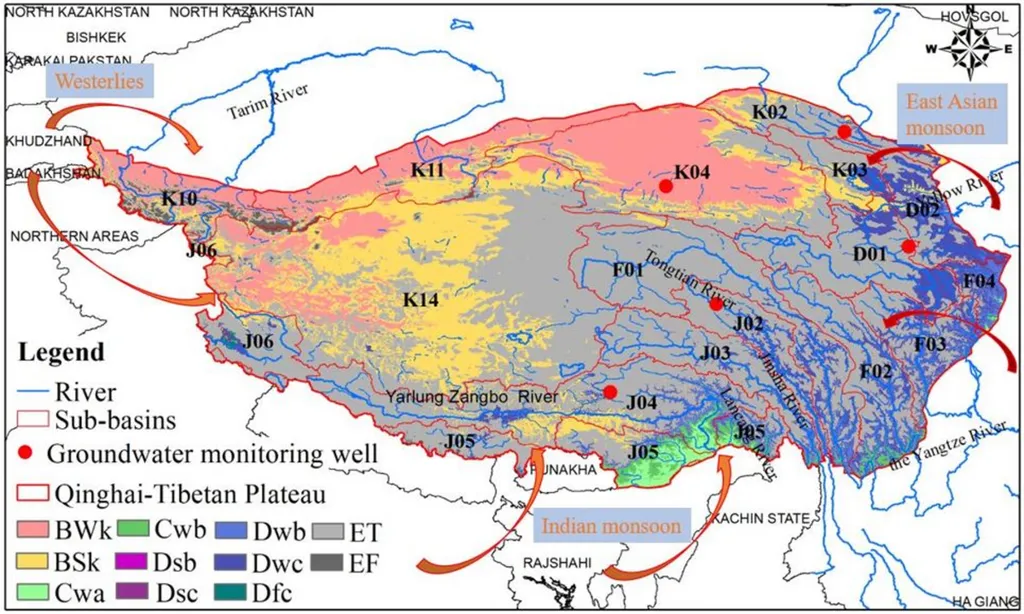In the heart of China’s Qinghai-Tibet Plateau, a silent crisis is unfolding beneath the surface, one that could have profound implications for the energy sector and beyond. The Zoige Plateau, a vast and ecologically sensitive region, is experiencing significant groundwater depletion, according to a recent study published in the *Journal of Groundwater Science and Engineering* (translated from Chinese as “地下水科学与工程学报”). The research, led by Yong Liu of the Institute of Exploration Technology at the Chinese Academy of Geological Sciences in Chengdu, sheds light on the complex dynamics of groundwater in this alpine basin, offering critical insights for sustainable resource management.
The Zoige Plateau, known for its pristine wetlands and unique ecosystem, is a vital water source for the region. However, the study reveals a troubling trend: groundwater levels have been declining at an average rate of 0.4 centimeters per year over the past two decades. This depletion is not uniform; it varies significantly across different landscapes. “The most severe declines are observed in the grassland flatlands, where groundwater levels have dropped by up to 2.3 meters,” explains Liu. “This is largely due to wetland degradation and increased evapotranspiration, driven by climatic variability.”
The research employs a sophisticated blend of in-situ monitoring, GRACE satellite observations, and GLDAS model outputs to paint a comprehensive picture of groundwater dynamics. The Innovative Trend Analysis (ITA) method, combined with conventional statistical techniques, has enabled the team to identify both seasonal fluctuations and long-term depletion trends. The findings highlight the spatial heterogeneity of groundwater variation, with mountain regions showing slower losses of around 0.1 centimeters per year, primarily supported by sustained snowmelt recharge.
For the energy sector, these findings are particularly relevant. Groundwater is a critical resource for various energy-related activities, including hydropower generation, geothermal energy extraction, and even conventional oil and gas operations. The depletion of groundwater reserves could lead to increased costs and operational challenges, as well as potential environmental impacts. “Understanding these dynamics is crucial for developing sustainable strategies that balance energy production with environmental conservation,” says Liu.
The study also underscores the importance of integrating multi-source datasets to gain a holistic understanding of groundwater systems. This approach not only enhances the accuracy of predictions but also provides a robust framework for informed decision-making. As climate change and anthropogenic pressures continue to impact alpine wetland systems, the insights from this research could shape future developments in groundwater management and energy policy.
In an era where sustainable resource management is more critical than ever, the work of Yong Liu and his team serves as a timely reminder of the intricate interplay between climate, hydrology, and human activity. By leveraging advanced technologies and innovative analytical methods, researchers are paving the way for a more resilient and sustainable future. As the energy sector continues to evolve, the lessons learned from the Zoige Plateau could prove invaluable in navigating the challenges ahead.

